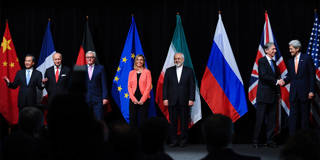No one should confuse the "Joint Comprehensive Plan of Action" with a solution to the problem of Iran’s nuclear ambitions or its contributions to the ongoing turmoil in the Middle East. On the contrary, depending on how it is implemented and enforced, the agreement could make matters worse.
NEW YORK – It is probable that after 60 days of intense debate in Washington, DC, and conceivably Tehran, the “Joint Comprehensive Plan of Action,” signed on July 14 by Iran and the UN Security Council’s five permanent members plus Germany (the P5+1), will enter into force. But no one should confuse this outcome with a solution to the problem of Iran’s nuclear ambitions or its contributions to the ongoing turmoil in the Middle East. On the contrary, depending on how it is implemented and enforced, the agreement could make matters worse.

NEW YORK – It is probable that after 60 days of intense debate in Washington, DC, and conceivably Tehran, the “Joint Comprehensive Plan of Action,” signed on July 14 by Iran and the UN Security Council’s five permanent members plus Germany (the P5+1), will enter into force. But no one should confuse this outcome with a solution to the problem of Iran’s nuclear ambitions or its contributions to the ongoing turmoil in the Middle East. On the contrary, depending on how it is implemented and enforced, the agreement could make matters worse.